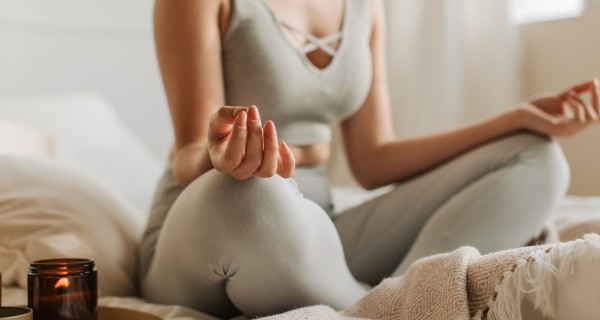Many healthcare professionals and treatment centers recognize the importance of a more holistic approach in addressing the underlying causes and tackling the effects of substance use disorders.
Substance use disorder (SUD) is a complex illness that can greatly affect a person’s physical health. SUD can further impact one’s emotional, mental, and spiritual well-being. Over the years, complementary and alternative medicine (CAM) including different types of holistic therapies have been integrated into SUD treatment and recovery plans.
What is Holistic Therapy?
Holistic therapy is an integrative approach that promotes the healing of every aspect of an individual – body, mind, and spirit. It is often used alongside traditional treatments to ensure a person’s overall recovery. In SUD treatment, holistic therapy is used to address the root causes of substance misuse and to manage symptoms.
As part of a well-rounded treatment plan, holistic therapy focuses on the psychological, emotional, and social effects of SUD. At the same time, medical conditions, withdrawal symptoms, and other physical issues are treated. This approach promotes balance, helping individuals achieve long-term recovery.
Benefits of Holistic Therapy
Holistic treatment takes into consideration an individual’s overall well-being. As such, techniques such as holistic therapy can have many advantages in treating various illnesses including substance use disorders.
In SUD treatment, holistic therapy can support recovery in several meaningful ways:
- Developing Healthy Behaviors: It helps those in recovery stay fit and resilient by promoting healthy behaviors. This can be through engaging in physical activities like yoga, maintaining a healthy diet, and observing good sleep habits.
- Achieving Emotional Balance: It can help individuals develop healthy coping skills that will allow them to process emotions safely and effectively.
- Building Safe Relationships: Engaging in holistic therapy can connect individuals to others with similar recovery goals. This helps reduce feelings of isolation as they create supportive networks.
- Finding Meaning: Holistic therapy is a great way for people in recovery to reconnect with themselves. This fosters a sense of purpose as they learn to appreciate their recovery journey.
Additionally, holistic therapy is gentle on the body and the mind, with minimal side effects. Since different techniques can be used, holistic therapy can also be easily tailored to meet a person’s specific recovery needs.

Holistic Therapy Examples in Recovery
In recent years, many complementary and alternative therapies for SUD have shown real promise. As a result, many treatment centers have embraced holistic therapies as part of their SUD treatment and recovery programs. The holistic therapies and techniques used vary and depend on the needs of those recovering from SUDs.
Biofeedback and Neurofeedback
Electronic sensors are used to monitor brain waves, heart rate, and muscle tension. The data gathered are then used to help individuals develop control over these physiological processes. Such control is applied to reduce stress and improve overall mental state.
Binaural Beats
Also known as brain entrainment, binaural beats therapy is used to help reduce stress and anxiety while lifting overall mood. It involves listening to a different tone in each ear using headphones. These two tones are then processed by the brain as a new tone which can be used to mimic the brainwave patterns when meditating or to induce a relaxed state.
Art and Music Therapy
These therapies are used to help people in recovery in navigating and expressing their emotions. These expressive therapies allow them to be more in tune with their emotions making way for emotional healing.
Acupuncture
This is a traditional Chinese practice that aims to rebalance the body’s energy. It is used to reduce stress and anxiety, alleviate withdrawal symptoms, and lessen cravings.
Somatic Therapy
Somatic therapy is a form of therapy that focuses on the connection between the mind and body. It emphasizes the physical sensations that arise from emotions and past experiences, using the body as a tool for healing.
Mindfulness-Based Therapy
Using mindfulness and meditation techniques, those in recovery become more in sync with their thoughts, emotions and sensations. This can significantly mitigate negative emotional states that often contribute to substance misuse and relapse. Regular mindfulness and meditation can also aid in managing cravings and coping with triggers.
Yoga
Yoga incorporates physical postures, breathing techniques, and meditation to boost physical strength and improve mental clarity. Regular yoga sessions can help reduce stress as well as enhance emotional and mental resilience. These will come in handy in managing triggers and overcoming cravings.
In addition to these holistic therapies, activities that boost physical health and emotional well-being are also incorporated into SUD treatment. These can include the following:
- Regular Exercise
Exercise can serve as a healthy and effective coping strategy in tackling substance cravings. Regular exercise is known to improve mood and reduce negative emotions and thoughts triggered by substance misuse. It’s also a great way to build back one’s physical strength which often takes a hit with substance misuse.
- Adequate Sleep
A good night’s sleep can do wonders for one’s physical and mental health. It can boost energy levels and sharpen cognitive functions. It is vital to create an environment that can promote restful sleep and help one adhere to a consistent sleep schedule.
- Healthy Diet
Nutrition can have a great impact on physical and mental health. It is therefore important for those struggling with SUDs to incorporate a balanced, nutrient-rich diet into their recovery plan. This can aid in gaining back one’s physical strength by restoring nutritional deficiencies due to SUD.
- Social Activities
It’s crucial to engage in leisure activities that can provide a sense of enjoyment while diverting one’s attention from substance misuse. Social activities can also lead to the establishment of healthy support networks that can be helpful during recovery.
FAQ
Holistic therapy vs regular therapy: what’s the difference?
Holistic therapy uses different techniques like meditation, exercise, and nutrition to heal the whole person – mind, body, and spirit. Regular therapy, on the other hand, typically focuses on mental health, addressing specific psychological issues. Both forms of therapy aim to promote overall well-being.
Can holistic therapy prevent relapse?
Yes, holistic therapy can help prevent relapse by addressing underlying issues, promoting overall well-being, and incorporating practices like mindfulness. However, holistic therapy is only meant to complement, not replace, conventional treatments. Incorporate holistic therapy into SUD treatment plans for best relapse prevention outcomes.
Does holistic therapy work?
Yes, holistic therapy can be effective for many people. It promotes overall well-being by addressing physical, mental, and emotional health. However, the success of holistic therapy varies by individual, and it works best when integrated with conventional medical treatments.
Holistic Therapy for Mental Health and SUD Recovery
Holistic therapy is indeed a helpful tool in SUD treatment and recovery. The type of therapy can vary based on the individual’s needs making it suitable for personalizing treatment plans. However, keep in mind that holistic therapy is meant to be a supplemental treatment option. It’s still best to integrate conventional treatment practices with holistic therapies to achieve long-term recovery.
We, at Positive Sobriety Institute, understand the importance of addressing every aspect when it comes to substance use disorders. This is why we always emphasize creating individualized treatment plans integrated with proven and tested holistic therapies. Our facilities in Chicago provide a place for those struggling with SUDs that fosters overall healing and sustainable recovery. Visit us today and let us help you overcome SUD with holistic therapy!


